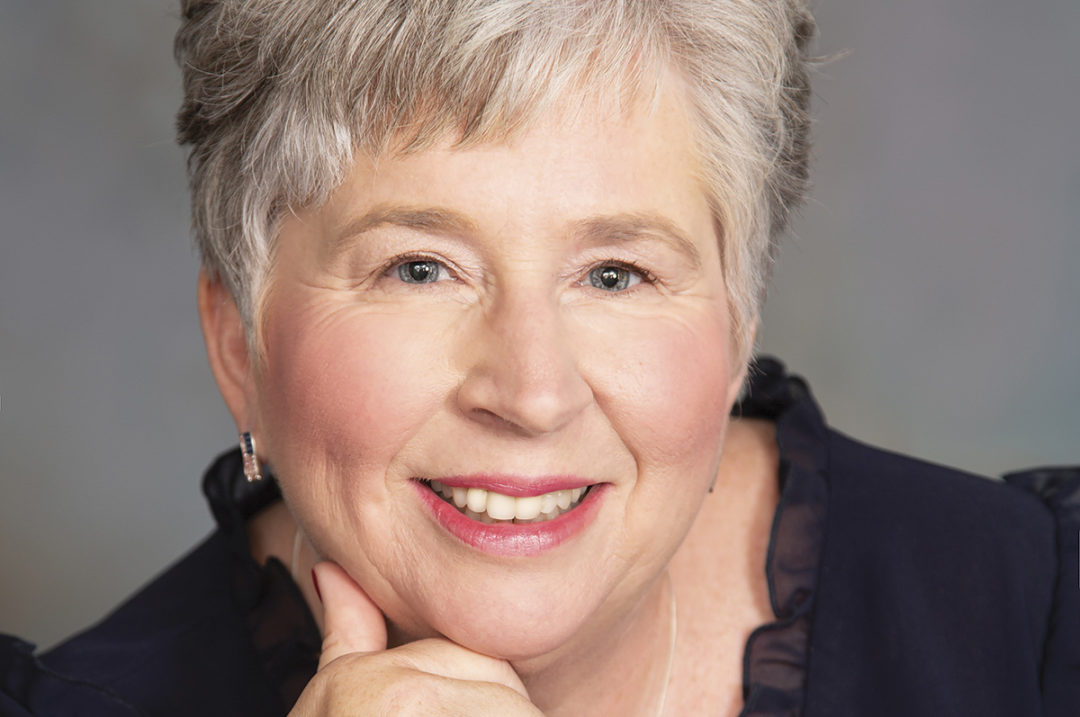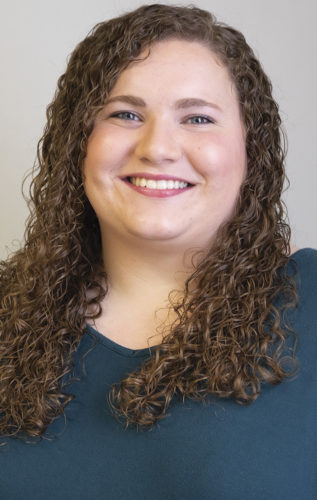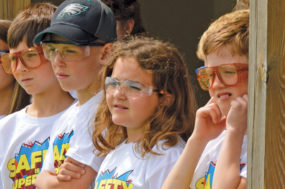Jeanette Lombardo is the executive director of the Farmer Veteran Coalition, based in Waco, Texas. This nonprofit organization assists military veterans with their transition from the armed services to careers in the agricultural sector or aids them in starting their own farming operations. As executive director, she leads and manages the strategic direction of the organization as well as managing day-to-day operations in support of its mission. Lombardo grew up on a farm outside of Erie, Pennsylvania, where her family raised Angus and Hereford cattle. Her extended family are multigenerational dairy farmers.
How have your experiences working in your field influenced your growth, personally and professionally?
After college, I went into agricultural banking for 24 years. You quickly learn how regulations, trade policies, and local, state and federal politics affect the farmer’s bottom line. This awareness led me to being an advocate for the farmers that I loved and who treated me like family. I started in ag lending during the late '80s farm crisis and ag recession, low crop prices and low farm incomes. This started a path of tough conversations and decisions. I had to develop professionally as fast as I could to help as many farmers as possible stay in business. My work became my passion and, I felt, my God-given purpose, which was to keep farmers producing to feed the people of this country. In a time where the farm foreclosure list turned into the obituaries, I became a straight shooter who did not waste time but told it like it was and then provided counsel until “my guys” were up on their feet again. Banking and being an agricultural advocate give me a lot of tenacity, grit and the ability to bring people together to find hope.
What roadblocks have you run into, and how have you overcome them?
In the '80s and '90s, there were few women bankers at my level, and there were less in agriculture. Some of the presidents of the banks that I worked for said that the farmers only wanted to talk with the male lenders. I would go to meetings and was asked to make coffee and take minutes, not to share my thoughts. This is just how it was, and you could either complain about it or work within the box. I overcame this by getting credentials and earning the respect of farmers slowly over time. I worked very hard during the day at work, and late into the night reading and learning about all aspects of farming and regulations. Even though I was a single mother of two in my 40s, I allowed it to consume me.
This passion led to me being the state president for California Women for Agriculture, national president for American Agri-Women, state and federal appointments, starting California Food and Agribusiness Advocates, co-founding Global Water Innovations and now to leading the Farmer Veteran Coalition. It has all been a journey, and I am looking forward to the next chapter.
Who has influenced you in your leadership role and why?
Male farmers. Some very large farmers whom I fought in the trenches with on ag legislation saw something in me, believed in me, opened doors for me and financially supported me with my advocacy and water companies. They instructed me on how to fight battles and win. I imagine why is because they needed me to be strong. They needed more people to fight for them. Additionally, there have also been some very strong and intelligent female agricultural advocates across this country who literally showed me the ropes in Sacramento, Austin and D.C. I would not be who I am without their guiding hand. Together, we continue to fight for the way of life that we love.
What is the best piece of advice you’ve ever been given?
Never apologize for being authentic – you are enough.
What advice would you give to other women in your field?
Find balance. Not balance that is weighed day to day but over the course of time. There are weeks where you are 100% your career and weeks that you are 100% your family. Know that doing what you love is such a wonderful example for your children, who are always watching. Choose your partner carefully – may they always support that which lights the fire within your soul.
Who are other female role models you look up to?
There are so many! We have debated over position statements and white papers, coached each other on writing letters to the editors and public speaking with a timer flashing in front of you. We have cheered each other on, recharged our spirits from the energy of our tribe, and have been there for each other during personal and professional trials. Our women friends are so important as we head into the later years of our lives. Many have become lifelong friends. We share a passion that few could understand; we get each other, and we need each other.
How did you end up in the occupation you have now?
As I stated earlier, I was a banker for 24 years. One day, one of the farmers at the bank I worked at committed suicide. Milk prices were down, feed prices were up and he could no longer feed his animals. I decided to stop straddling the fence between banking and agricultural advocacy and started my first company in 2012 called California Food and Agribusiness Advocates. It was perfect timing as my daughter Lauren was heading into college. My work in the industry led to an appointment on the LA [Los Angeles] Regional Water Quality Control Board, then the USDA FSA [Farm Service Agency] Agricultural Technical Advisory Committee for Trade in Fruits and Vegetables, and recently the U.S. EPA Farm, Ranch and Rural Communities Committee.
Service on the LA and Ventura County Regional Board led to water becoming my specialty. When the Groundwater Sustainability Act of 2014 was passed, and farmers grouped together to develop sustainability plans, it became clear that for our county, the only option was to cut demand on groundwater. This meant 45% cuts in water allocations to many farmers in the area. In 2016, realizing that we needed to create water organically within the basin at price points that worked for agriculture, I co-founded Global Water Innovations to create new technology for brackish water, oil-produced water and tailwater cleanup. By 2020 the water battles had heated up, and it was clear that the basin was heading to adjudication. As I watched my clients lawyer up, I was contemplating the next steps when I received a call from a recruiter about my current position.
Is this what you’ve always wanted to do?
Yes. This position takes everything that I am from my life’s journey and uses every aspect of it daily. It is the perfect use of everything that I bring to the table. Even though my farmers are smaller now, I love them the same. It is so rewarding to watch them grow their operations and see their hopes come to fruition. There will always be bumps in the road, but that is why the Farmer Veteran Coalition was designed the way it is and has the staff to help every step of the way. We truly are a family. The family is getting bigger and stronger. As our chapters develop, I see so much work ahead that together we can make a strong impact on.
If you weren’t in the career you have now, what would you be doing?
That is so hard to even imagine. If I was not in this career, I would always stay in agriculture, simply because the people are so genuine and real. I guess that I would be on a mission somewhere, teaching people in the far-off corners of the world how to grow food or clean their water. When it is time to slow down a bit, I really would like to write children’s books teaching agriculture. I have already selected titles – Casey’s Tomatoes, Keith’s Strawberries, Steve’s Onions, Elaine’s Lemons, Carol’s Peaches, Carrie’s Wheat – you know who you are! You see, for some of us, the land and soil never leave you.








